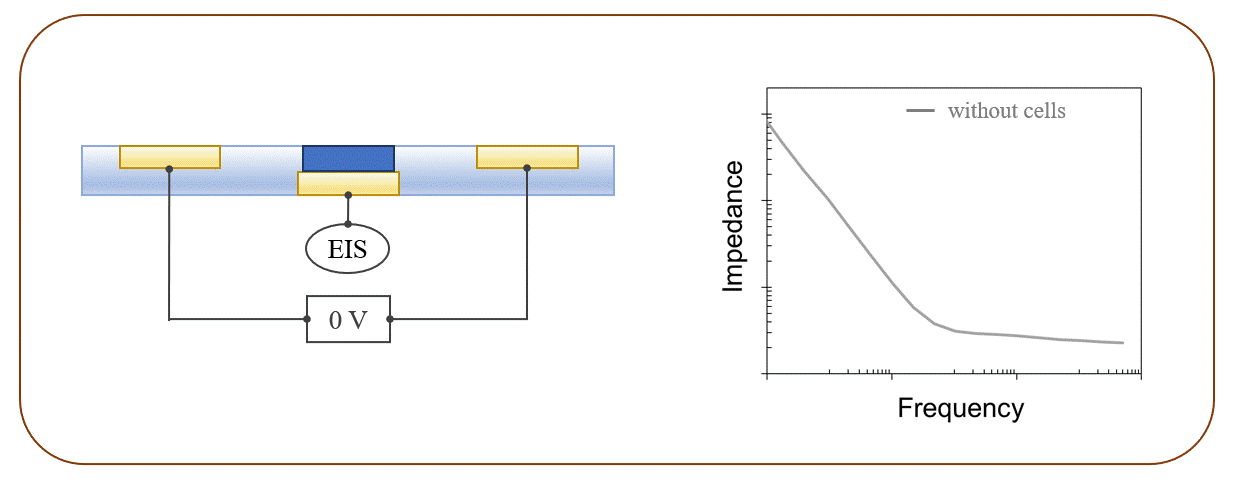 Electroporation has been used in biomedical applications such as electrochemotherapy, nonthermal tissue ablation, gene therapy, and drug delivery. To optimize the pulsed electric fields and achieve the desired degree of electroporation, the impedance changes of cells and tissue can be monitored to provide feedback regarding treatment progression.
Electroporation has been used in biomedical applications such as electrochemotherapy, nonthermal tissue ablation, gene therapy, and drug delivery. To optimize the pulsed electric fields and achieve the desired degree of electroporation, the impedance changes of cells and tissue can be monitored to provide feedback regarding treatment progression.
Here, we present an electroporation microchip containing stimulation electrodes to deliver pulsed electric fields, as well as an array of micro-scale (100 μm) sensing electrodes to perform electrochemical impedance spectroscopy. To enhance the sensitivity of the system, the impedance of the sensing electrodes were reduced by coating them with the conducting polymer PEDOT:PSS.
During the growth of a cell monolayer the impedance increased an order of magnitude and stabilized when a fully confluent cell layer had formed. Upon treatment with pulsed electric fields, the decrease in impedance showed a voltage dependency that could be related to higher levels of electroporation that was determined with propidium iodide.
This work demonstrates the integration of highly sensitive microelectrodes with stimulation electrodes that can be used to monitor treatment progression and improve outcomes of electroporation-based therapies.
